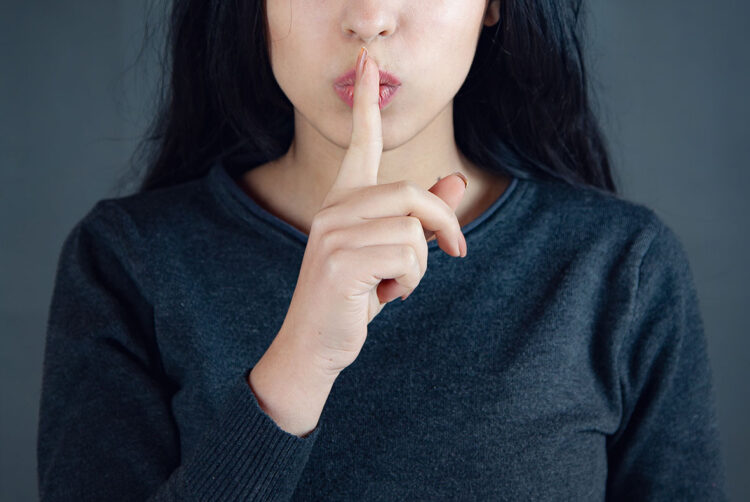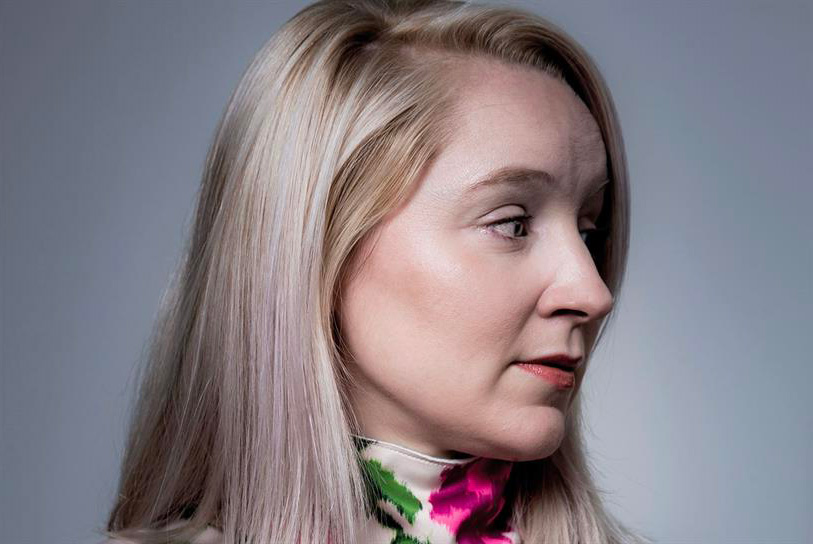Like all big changes, it happened gradually and then suddenly.
First came the constant caveats and the never-ending “no worries if not”. Before long, I was routinely asking “Does that make sense?” at the end of every perfectly sensible suggestion.
Then I opened the floodgates on a sea of sorry: so sorry to disagree, so sorry this is late, so sorry I must get home to feed my baby. Then came the silence and crippling self-doubt.
Before I’d realised, I’d wiped out my opinion as if it were a stain — a process that both clouded my clarity and placed my passion on pause.
It is crystal clear to me now that self-editing in the workplace is a brutal form of self-sabotage. It not only robs women of their confidence and self-belief, but is catastrophic for creativity.
Because behind almost every marketing and media catastrophe of modern times sits the question: how did no-one say anything?
Women are calling out stereotypes, sexual harassment and substandard work — they are speaking up. But not only are they not being heard, they are being systematically gaslit into silence.
Two decades of covering some of the biggest marketing mishaps of modern times has taught me that women in our industry are self-editing as a form of self-defence. The media industry continues to punish women for the simple act of daring to hold an opinion.
Self-editing as self-protection
My experience of training female leaders in the media industry with social learning practice Good Shout has lifted a lid on the real reasons why women self-edit.
Here are just a handful of things female leaders are routinely criticised for: being too direct; sharing too much; being too emotional; lacking gravitas; being too cold; not being professional; having the wrong name; having children; being childfree; wearing trainers; not wearing make-up. The list goes on.
Women walk an exhausting tightrope of being simultaneously too much and not enough. Too often, they are defined by what they will never be: a white man. And both men and women judge them against that impossible benchmark. Is it any wonder that women self-edit in this environment?
Consider how many times you have sat through industry presentations featuring the thoughts of just a handful of men. Then consider how much attention those same men give to issues of diversity, equity and inclusion. The cost of their silence is disproportionately paid by women.
Corporate gaslighting
Damaging stereotyping continues in the media. We remain careless with our language and discard inclusion efforts like hobbies we have tired of. In this void of accountability, the default “thought leader” remains white men, while the burden of blame still falls on women calling out bad behaviour, rather than the bad behaviour itself.
Consensus is the enemy of creativity, yet the media industry continues to gaslight women for challenging the status quo. It is vital to recognise that in our industry this burden is disproportionately carried by black women. Women are tasked with the immense responsibility of diversity, equity and inclusion efforts, backed by none of the financial tools necessary to truly get the job done.
It’s a business model built not for organisational accountability or efficiency, but on the backs of the individuals it conspires to burn out.
We must stop setting women up to fail by holding them to impossible standards. Even a cursory glance of the criticism rained down on female sports commentators is a powerful reminder that what is considered mediocre in a man is still deemed unforgivable in a woman.
Against this backdrop, it is understandable that women stop speaking their minds or sharing a point of view.
Elevating women’s voices
“Decide what you stand for and then stand for it 100% of the time.”
The words of writer and academic Clayton Christensen may appear a simple direction. Yet in a media industry that still demands women bend until they break, it is a mantra well worth repeating. As individuals and as an industry, we must do more to elevate women’s voices.
It’s 2024 and yet women continue to face stereotypes that stop them from reaching their true potential. Senior female leaders continue to tell me that they are only asked to talk about diversity and inclusion. They are disproportionately criticised for sharing too much or not enough. And this judgement comes from other women too.
Just say it
The irony is that, if there was ever an industry in need of considering problems through a fresh lens, it is media. Women with an opinion have long changed the centre of gravity in this industry with grit and grace. So, if you are reading this and you have an idea you want to share, just do it. Don’t let your fear of what some “reply guy” on LinkedIn might say stop you from sharing it. Because the ripples of your voice can be monumental.
Consider how Cindy Gallop has redefined ageing and proved the creative and commercial advantage of challenging the status quo. How Chloe Davies has redefined what it means to really have social impact as a brand and as an individual. How Marty Davies is shining a light on the human cost of hate speech. How Zoe Scaman’s grit has finally shone a light on the untold stories of sexual harassment.
How Nishma Robb is redefining what leadership means. How consistently Amy Kean brings the oxygen of truth into our industry with both clarity and comedy. Or how Lindsey Clay demonstrates what it means to actually have a backbone in business.
It is vital to cherish and celebrate these women if we are to collectively build our potential. We must also be intentional in creating space for the next generation to challenge our thinking and showing them that their voices really matter.
If we really care about amplifying women’s voices, then we must call halt on this toxic cycle of editing ourselves and each other. As inclusion trailblazer Kai Deveraux Lawson explains so powerfully: “The truth is the best weapon we have.” It’s time to stop punishing women for speaking theirs.






 Nicola Kemp has spent over two decades writing about diversity, equality and inclusion in the media. She is now editorial director of Creativebrief. She writes for The Media Leader each month.
Nicola Kemp has spent over two decades writing about diversity, equality and inclusion in the media. She is now editorial director of Creativebrief. She writes for The Media Leader each month.